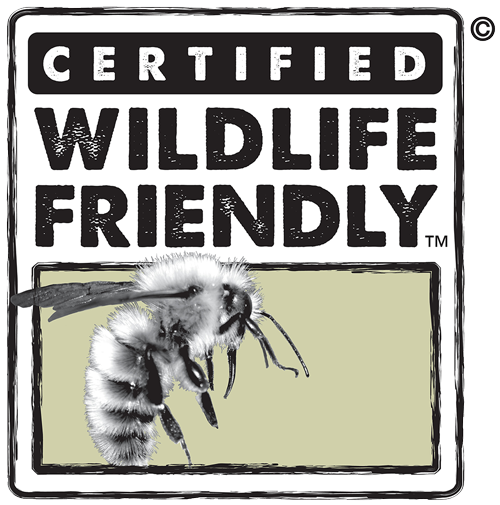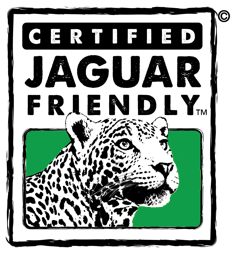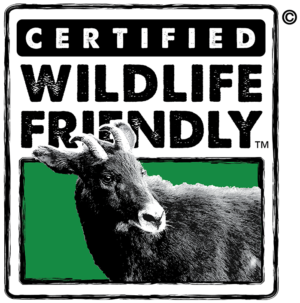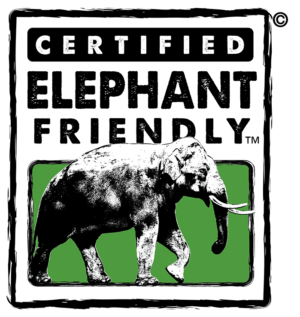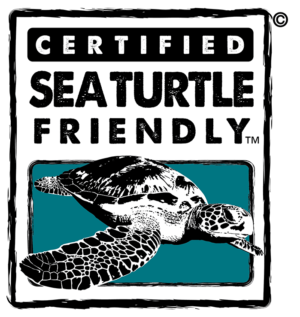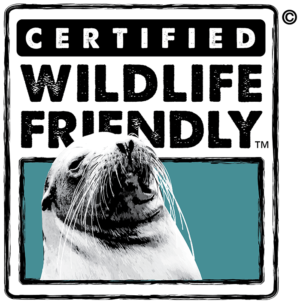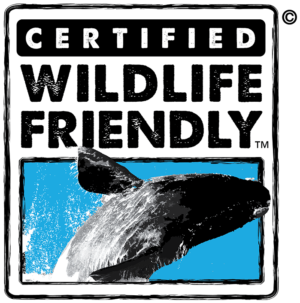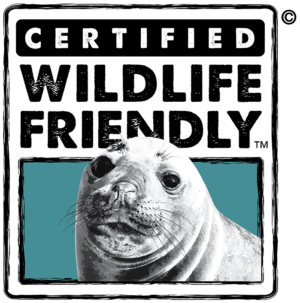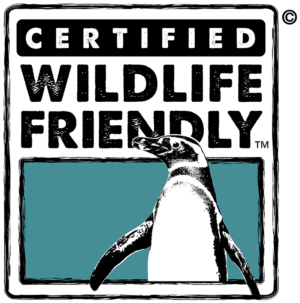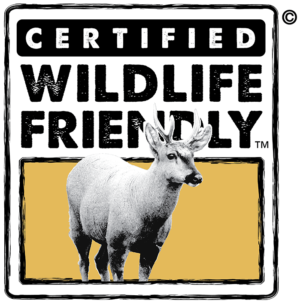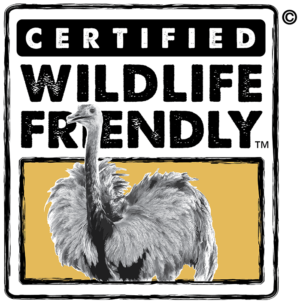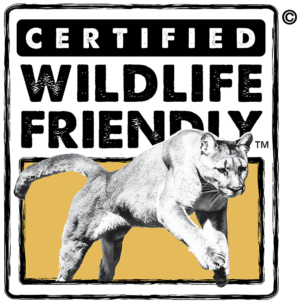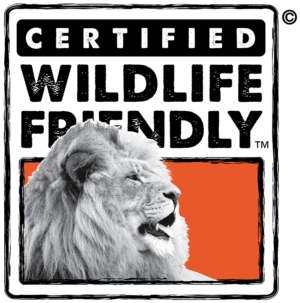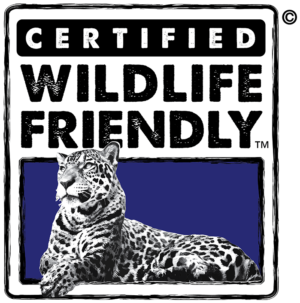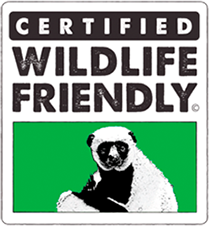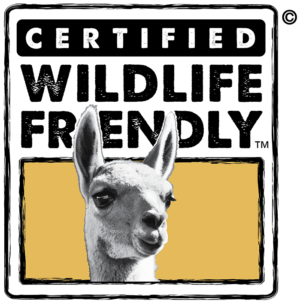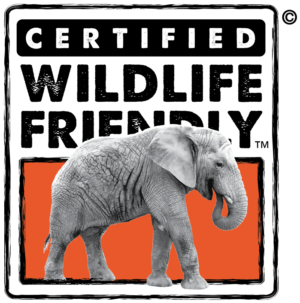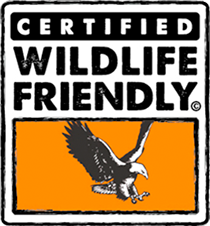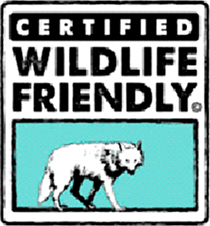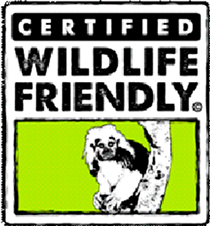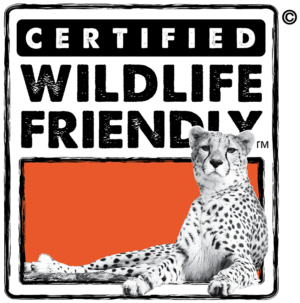Buenos Aires Based Brand ‘Cubreme’ Sources Wildlife Friendly™ Merino Wool for New Collection

Designer Alejandra Gottelli Showcases Homegrown Natural Fibers that Support Argentine Family Farms, Artisans and Wildlife
FOR IMMEDIATE RELEASE
BUENOS AIRES ARGENTINA – JANUARY 07 2020– Cubreme, an Argentine clothing and home goods brand, has joined the Wildlife Friendly Enterprise Network and is now sourcing Wildlife Friendly™ merino wool from Certified Wildlife Friendly™ ranches on Península Valdés in Patagonia Argentina. ‘Cubreme,’ which translates to ‘cover me’ or ‘keep me warm’ in English, is a socially and environmentally focused clothing and home goods line working with small producers to source natural fibers. The brand employs family-owned and operated tailors to hand weave and finish fabrics for the line. Alejandra Gotelli, one of the designers behind the label, explains, “Cubreme was born with the principle objective of sustainable development for the regions where small producers live by utilizing renewable, natural resources such as animal and plant fibers. Our philosophy is illustrated by our logo which has the letter “e” turned in the other direction, as a ‘wink’ towards a return to social equity, environmental balance and business ethics.”

Península Valdés is a 4,000-square-kilometer (1,544 square miles) protected area in Patagonia, declared a UNESCO Natural World Heritage Site in 1999. In the 1880’s when the first Europeans arrived and brought their domestic sheep with them, and a new era was ushered in placing ranching at the center of the regional economy. During the 1960s Península Valdés became a global destination for eco-tourists leading to the creation of the first coastal reserves and subsequently to the declaration of UNESCO World Natural Heritage Site for the entire area.

Scientists identify the principal threats to biodiversity as habitat degradation due to overgrazing and competition for water by livestock, and poaching. Guanacos are killed for meat and sport, and some landowners allow people from the cities to hunt guanacos in order to reduce numbers. Carnivores like pumas and Culpeo fox are often hunted or poisoned in retaliation for presumed predation on domestic animals, especially on lambs.
Despite this the ranchers from the Merino de Península Valdés group are committed to achieving coexistence between sheep ranching for wool production and healthy wildlife populations. “To achieve our goals, we are implementing management actions based on scientific research on wildlife ecology,” said Ricardo Baldi, a scientist from CONICET, the Argentine national science agency. “We work to reach responsible standards, accounting for the sustainable use of the grasslands in coexistence with the native herbivores; and protecting the sheep by using non-lethal methods to control the native predators.”
“We applaud these ranchers and Argentine brands like Cubreme who are showcasing these important coexistence efforts through their brand ethos,” said Julie Stein, Executive Director and co-founder of WFEN. “Consumers are now looking for this kind of commitment from the brands they buy.”
In addition, Cubreme has offset their carbon footprint via five Carbon Capital certified products, amongst these is the Wildlife Friendly™ merino. To learn more or to purchase Cubreme products please visit: https://cubreme.com
###
About Cubreme
Cubreme is a decision to create simple, beautiful and lasting designs. We source our materials in their purest forms respecting their nature every step of our process. Our inspiration is always evolving and arises from people, their stories and moments in time; by memories of something loved, something to keep and inherit and by a deep appreciation for timeless styles. Our contemporary design represents a fusion of people and their natural environment; of crafts and consideration for regional natural resources and local identity. Our work follows in the footsteps of traditional techniques. The hand and its skill enable a careful and conscientious production. We seek to give each garment and object its own spirit and story. For stockists: https://cubreme.com/puntos-de-venta-retailers/
About Wildlife Friendly Enterprise Network
WFEN and its certification programs represent grassroots farmers, ranchers, herders, artisans, indigenous peoples and conservation heroes from around the world including two World Bank Development Marketplace Award winners, a U.N. Equator Prize winner, leadership in the world’s marketplace for REDD+ Carbon Offsets, and a Time Hero for the Planet. Wildlife Friendly® products contribute to the conservation of over twelve million hectares of diverse wetlands, forests, and grasslands; protect keystone endangered species in Asia, Africa, Europe, and Latin and North America, including the Snow Leopard, Elephant, Tiger, Cheetah, Red Panda, and Wolf; and benefit over 200,000 people through increased food security, income and employment. For more information visit: www.wildlifefriendly.orgh, Instagram: @wildlifefriendly, Twitter: @wfen, Facebook.com/wildlifefriendly
Contact
Cubreme: Alejandra Gottelli – agottelli@cubreme.com
WFEN: Julie Stein – Julie@wildlifefriendly.org
Home grown luxurious merino wool sourced from Certified Wildlife Friendly™ ranchers is part of WCS Argentina’s Patagonian Fibers with a Conscience™ program
FOR IMMEDIATE RELEASE
BUENOS AIRES AND PUERTO MADRYN, ARGENTINA (January 7, 2019)— Argentine knitwear line Maydi, 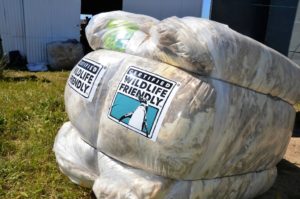
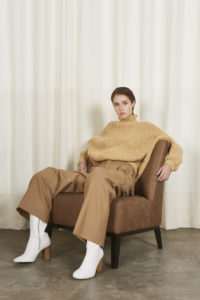
WCS Argentina supports the Merino Peninsula Valdés™ (MPV) group who are committed to managing their ranches to allow healthy populations of guanacos, rheas, and maras to co-exist with their sheep, and to use non-lethal methods to control predation by pumas, chilla foxes, and Geoffroy’s and pampas cats. Fundación Vida Silvestre Argentina (FVSA) will provide third-party verification of compliance with commitments and collaborate with WCS to monitor impacts on wildlife. “We all agree in making the coexistence between sheep ranching and healthy wildlife a long-term achievement,” said Alejandro Arias, coordinator of the FVSA program. WCS and FVSA are working together under a cooperation agreement with the USFWS to expand the sustainably managed land in the area.
Península Valdés is a 4,000–square-kilometer (1,544 square miles) protected area in Patagonia, declared a UNESCO Natural World Heritage Site in 1999. Península Valdés still harbors significant populations of native wildlife, and its waters are critical habitat for southern right whales, sea lions, magellanic penguins and elephant seals. Although a management plan has been effective in conserving coastal wildlife, the land is privately owned and sheep ranching is widespread.
“These ranchers are committed to wildlife-friendly practices because they are convinced that their economic futures are better served by moving away from maximizing sheep stocking rates and adding value by conserving native species at Península Valdés, an emblematic site of Patagonia. Our work is based on scientific research on wildlife ecology,” said Ricardo Baldi, a scientist from CONICET, the Argentine national science agency, and consultant for WCS.
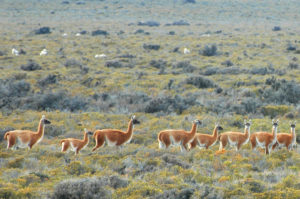
“We are so gratified to see this enthusiasm from designers and brands in sourcing Wildlife Friendly™ fibers,” said Julie Stein, former Executive Director and co-founder of WFEN, “because global consumers want to support wildlife and habitat through their purchases. This demand demonstrates to ranchers and the Argentinean government that wildlife has economic value and that wildlands and ranchlands can both thrive. Its very exciting to work with such an exceptionally talented designer like Maria who also shares our vision for a definition of sustainable fashion that includes biodiversity.”
For wholesalers, retailers and consumers interested in purchasing the Maydi line please contact: contact@maydiaz.com
###
About Maydi
Maydi uses only natural fibers and organic yarns in her hand-woven fabrics. The timeless spirit of each piece manifests itself in a 100% contemporary and refined design, carried out through the ancient techniques of hand-knitting, manual weaving loom and crochet, which are thus revalued. Maydi believes in the principles of fair trade, hence her designs are developed and produced in collaboration with local Argentine artisans, assuring them fair remuneration and respect for the legacy of their craft and art. Weaving loom is one of the oldest cultural traditions of Aboriginal peoples and a clear statement of the importance of women as transmitters of life and culture in society and selects exclusively noble materials such as merino wool of Argentine Patagonia —including yarn in spinning wheel—, mohair, cotton and silk straw. Argentine organic merino is comparable with precious fibers (such as cashmere and alpaca) for its smoothness, shine, and softness, and stands out among the main materials used in the collection. For this reason, beyond this intrinsic quality of fiber, Maydi works with Merino wools that are backed by a production process which takes care of the environment, the well-being of animals and the development of individuals and organizations involved in the entire value chain.
The dyes used are completely natural, obtained from native plants such as: Tara, Palo Amarillo, Guayacán and Cochinilla from Argentina and South America through environmentally friendly processes.
Maydi sets the quality bar very high, ensuring meticulous attention to detail in the entire process of creation of each garment, hand-made from start to finish. Thus, the design of each piece enables raw materials to speak for themselves. The brand continues to cultivate a relationship with internal market: Maydi redoubles its value for customers who appreciate good taste and high design, with made-to measure pieces. Thus, it intensifies the uniqueness of its items and justifies even more the longing for them.
INTERNATIONAL STOCKISTS
SOLIS
6, quai Jules Courmont, Angle rue Thomassin 69002 Lyon — FRANCE
www.solisboutique.com
BIOTOP
4-6-44 Shirokanedai, Minato-ku, 108-0071, Tokyo — JAPAN
www.biotop.jp
LA KAGU
67 Yaraicho, Shinjuku-ku, Tokyo — JAPAN
www.lakagu.com
PLAGE
20-17 Daikanyamacho, Shibuya-Ku 162-0805 Tokyo — JAPAN
www.plage.baycrews.co.jp/store/
CEMENT
2-14-25-101 Shimo ochiai Shinjuku-ku 161-0033, Tokyo — JAPAN
www.cement-own.com
ISETAN
3 – 14 – 1 Shinjuku, Shinjuku-Ku 160-0022 Tokyo — JAPAN
isetan.mistore.jp/store
MAIDENS SHOP
2-19-12 Jingumae Shibuya-Ku, Tokyo — JAPAN
shop.maiden.jp
CHAOS
4-10-5 Jingumae Shibuya-Ku 150-0001 Tokyo — JAPAN
www.chaostokyo.jp
ORA ET LABORA
750 Fort Worth Ave Suite H130, Dallas, TX 75208 – USA
www.oetl.co
About Wildlife Friendly Enterprise Network
WFEN and its certification programs represent grassroots farmers, ranchers, herders, artisans, indigenous peoples and conservation heroes from around the world including two World Bank Development Marketplace Award winners, a U.N. Equator Prize winner, leadership in the world’s marketplace for REDD+ Carbon Offsets, and a Time Hero for the Planet. Wildlife Friendly® products contribute to the conservation of over fourteen million hectares of diverse wetlands, forests, and grasslands; protect keystone endangered species inAsia, Africa, Europe, and Latin and North America, including the Snow Leopard, Elephant, Tiger, Cheetah, Red Panda, and Wolf; and benefit over 400,000 people through increased food security, income and employment. For more information visit: www.wildlifefriendly.org, IG: @wildlifefriendly, Twitter: @wfen
About the Wildlife Conservation Society (WCS)
MISSION: WCS saves wildlife and wild places worldwide through science, conservation action, education, and inspiring people to value nature. VISION: WCS envisions a world where wildlife thrives in healthy lands and seas, valued by societies that embrace and benefit from the diversity and integrity of life on earth. To achieve our mission, WCS, based at the Bronx Zoo, harnesses the power of its Global Conservation Program in more than 60 nations and in all the world’s oceans and its five wildlife parks in New York City, visited by 4 million people annually. WCS combines its expertise in the field, zoos, and aquarium to achieve its conservation mission.
Visit: www.wcs.org;
https://www.facebook.com/TheWCS;
https://www.youtube.com/user/WCSMedia
Follow: @thewcs
Contact:
Maydi: contact@maydiaz.com
Conicet: Ricardo Baldi: rbaldi@wcs.org
WCS: Stephen Sautner; ssautner@wcs.org
Wildlife Friendly: Christine Lippai: christine@wildlifefriendly.org

